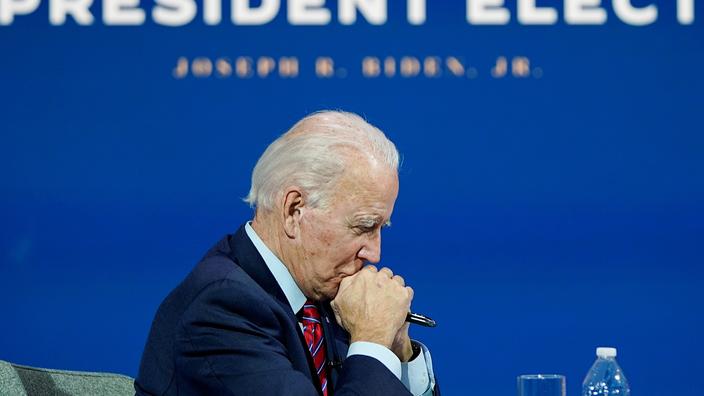Donald Trump gave the green light, Monday, November 23, to begin the transition with his successor Joe Biden, winner of the US presidential election after a close ballot in many strategic states.
Without always officially recognizing the victory of his adversary, the president who sees his appeals fail one after the other seems to agree to leave power.
Read also: No return to the "normal" world after Donald Trump
Now, the election of Joe Biden seems inevitable.
However, it will not take effect until January 20, 2021, when it is officially invested.
During this transition period, the Americans will have a "president" ( "
incumbent president
") - saddled with the nickname "lame duck" (
"lame duck") -
and an "elected president" ( "
President Elected
").
Here are the main stages for the next two months.
Read also: US Presidential: "We must repair the electoral system, reform it"
December 8: end of electoral appeals
Election challenges must end six days before the electoral college meeting, on December 8.
This is for the United States to provide a "
safe harbor period"
of five weeks after election day, to settle all disputes.
By this date, each state must send the electoral college its final results and present its
“certificate of ascertainment”
, a document guaranteeing the validity of the counting votes.
Rarely has this date been so significant in the electoral calendar.
Donald Trump - who has still not officially recognized the victory of his opponent - sought to invalidate the results of several states in court.
Only, one by one, all his appeals failed, for lack of proof.
Read also: US Presidential: Trump's appeals turn tragicomic
December 14: vote of the electoral college
In the United States, it is the large voters, elected by the American citizens, who elect the president.
These grand voters vote every four years on the second Monday following the second Wednesday in December - this year, December 14.
If the results of their votes do not give rise to suspense - the grand voters announcing their voting intentions before the elections - they are not immediately known, since it is necessary to wait until January 6 to count the ballots.
The big voters therefore go to the capitals of their states to vote.
They then have until December 23 to send their choice to the Senate.
To win the election, it is necessary to obtain the majority of the electoral college, that is to say 270 votes (out of 538).
According to the previously announced intentions of the elected voters, Joe Biden can count on 279 voters.
Theoretically, a great voter can refuse to vote for the candidate of his party, and become a “disloyal great voter” (
“faithless elector”
).
In 2000, a great voter of the District of Columbia had refused to grant his vote to Al Gore in protest that Columbia does not have the status of American state.
To avoid these situations, thirty-three states and, since 2000, the District of Columbia have laws that force voters to respect the popular vote.
Never in the history of the United States has a “
faithless elector
” tipped an election.
Read also: Is the American electoral system harmful to democracy?
January 6: election of the President of the United States
The 12th Amendment to the US Constitution mandates the counting of the electoral college votes on January 6 of the year following the election.
It is only at the end of this count that the President of the United States is officially elected.
The vote count is carried out by Parliament, i.e., the Senate and the House of Representatives, under the aegis of the incumbent Vice President - in this case Mike Pence - and sometimes under that of the President
pro tempore
of the Senate.
It is also the vice-president who proclaims the name of the new president at the end of the count.
If neither candidate wins a majority of the Electoral College's votes (270), the House of Representatives immediately meets to elect the President of the United States.
To date, the House of Representatives has elected the president on only two occasions: in 1801 and in 1825.
January 20: the investiture, or
Inauguration day
On that day, the President and Vice President will be sworn in at the Capitol in Washington DC. Vice President Kamala Harris will begin, and then Joe Biden will come.
He will say these words: "
I solemnly swear (or affirm) that I will faithfully fulfill the office of President of the United States, and that to the best of my ability, I will preserve, protect and defend the Constitution of the United States.
May God help me. "
By this date, the outgoing president must have left the White House or be expelled from it.
Another major symbol for America in 2021, on January 20, Twitter will hand over the @POTUS (for President of the United States) account to Joe Biden.

